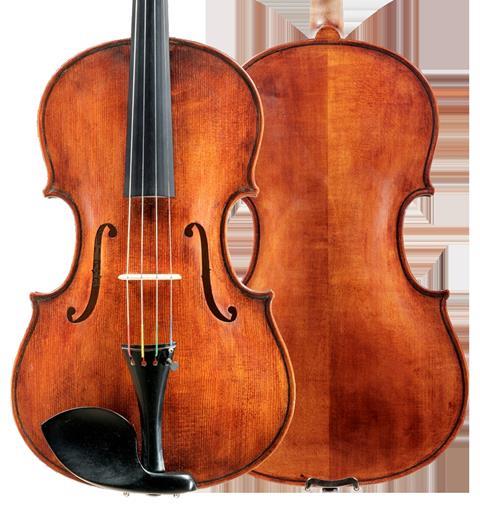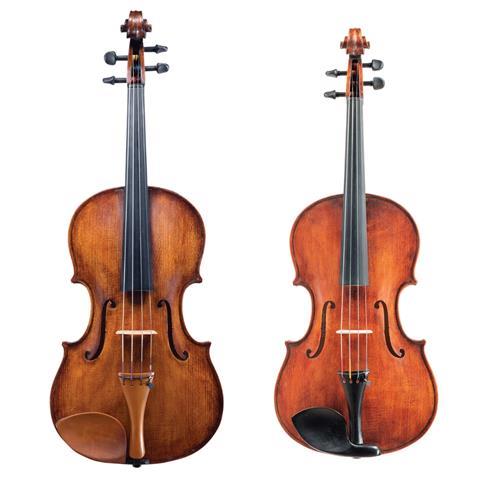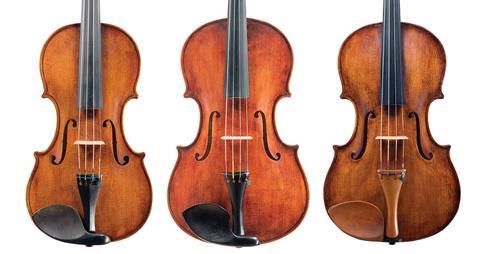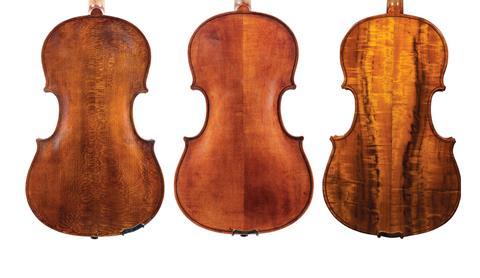Explore the range of V. Richelieu’s violins and violas crafted from FSC-certified materials sourced sustainably from around the world

Having achieved FSC Certification, V. Richelieu line of instruments are the first violin and viola line to be officially recognised for its sustainability. The Forest Stewardship Council offers the gold-standard of official recognition and the journey towards official recognition has been along a path few have travelled in the violin trade.
Inspired by the sylvan state of Vermont in which they are made, V. Richelieu instruments are a celebration of wood and forestry. Whether from Europe or the USA, the wood defines the instrument and it is sourced from carefully managed forests.
’The goal of our lutherie is to make the most beautiful instruments, both tonally and aesthetically,’ says owner, Kathy Reilly. ’But we want to do this in a way that recognises and supports excellent stewardship of the forests from which they come.’
FSC Certification centres on supply chain management, meticulously tracking wood origins from forest to instrument. Every stage, from the forest of origin to sawyer, drying, storage, and final instrument assembly, must be certified, with each participant holding the FSC seal.
Most of the wood that go into V. Richelieu instruments are from traditional trees but not from traditional forests. For example, the tops come from FSC-certified forests in Switzerland. These are traditional spruce forests and has all the characteristics of master-grade spruce used by great makers everywhere. But the foresters follow strict FSC rules: no petrochemicals, no clearcutting, and careful replanting. Additionally, this forester only cuts trees during the winter new moons, when the sap is in the roots and the wood is driest. Such practices maximises the quality of the wood and minimises post-harvest energy-consuming drying and processing.
’Our search for FSC certification has brought us to forests stretching from Switzerland to Oregon,’ says Reilly. ’And along the way, we have discovered some amazing woods to use in our instruments. And while we love using traditional spruce and maple, we have enjoyed “branching out” to less traditional woods as well.’

For example, inspired by bass makers at the International Society of Bassists, the V. Richelieu line experimented with Pacific Northwest American tonewood species for the Vermont-made violas. In particular, Big Leaf Maple and Myrtle broadened the range of sound possible. Our appreciation for these woods was confirmed when a 15” V. Richelieu with a stunning Myrtle wood back became a popular favourite at a recent American Viola Society convention.
Myrtle, a member of the laurel family, is less known among violin makers. The gold and brown banded wood, while visually striking, has similar tonal properties of European Norway Maple and New England red maple. Both density and sound velocity readings compare favourably with the traditional woods creating a rich, colourful dark sound.
Another species, Big Leaf Maple is the North American maple most similar to European maple. Giant specimens 200 to 300-years-old dominated the forested landscape of the Pacific Northwest from northern California up through British Columbia. Like Myrtle, it shares similar properties to European maples and creates a dark tone with strong projection - perfect for larger and smaller violas alike.
As slower growth of woods, Both Myrtle and Big Leaf Maple forests are outliers in the Pacific Northwest large-scale forestry, that values quick growth, high value, woods like Douglas Fir which can be pulped or used in plywood. As a general forest product, Myrtle and Big Leaf have low values, but as tonewood, they offer the foresters a strong return on their investment, especially when sustainably managed.


Seth Kimmel Basses and V. Richelieu instruments have partnered to develop a sustainably certified supply chain for Big Leaf Maple and Myrtle creating the first FSC sustainably certified violas for sale.
’Hopefully, others will follow the lead set by V. Richelieu,’ says Kimmel. As demonstrated by its winning the SBA Vermont Exporter of the Year award V. Richelieu and Vermont Violins is off to a great start finding homes for sustainable products around the world.
The V. Richelieu instruments are played by professionals and students. ’The joy,’ says Reilly, ’is making an instrument that can be enjoyed knowing that music making is kind to our planet. Some of our woods come from the FSC Forests managed by the Coquille Nation, a Native American Reservation in Oregon. From them we learnt of the ancient Mohawk law that tells us to “consider the effect of our actions and decision on the next seven generations. Seven Generations from now, we hope our instruments will be making their music in the shade of the forests from which they came!’
For more information visit: www.vrichelieu.com











































No comments yet